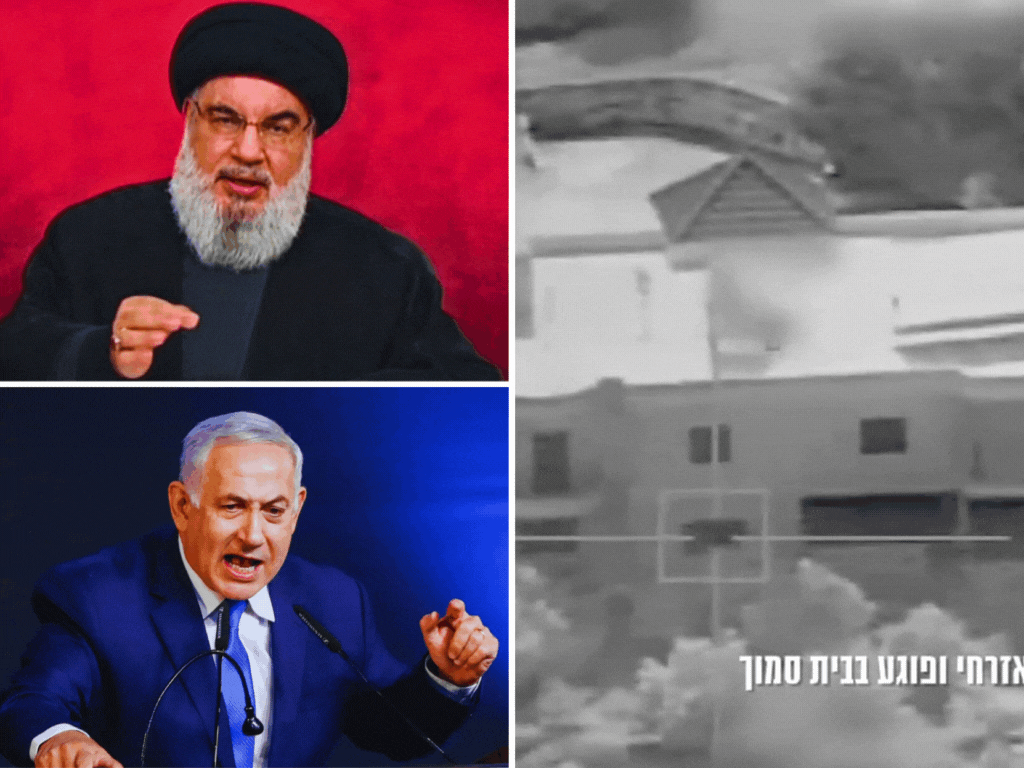Why diplomacy won’t be enough in latest Mid-East escalation

In recent days, Hezbollah significantly expanded the range of its rocket attacks, reaching past Tel Aviv and putting more than half of Israeli citizens in danger. But that’s not all.
Last week, Hezbollah’s top commanders held a high-level meeting in which they planned a large-scale terror attack against Israeli communities, one that would mirror the horrific massacre of October 7. Israel acted to prevent this attack and protect its citizens from an imminent threat.
The current conflict initiated by Hezbollah began on October 8, without any provocation from Israel, with frequent attacks launched from southern Lebanon, a territory Israel fully withdrew from in 2000. This aggression follows more than 11 months of rocket fire, which has claimed the lives of dozens of Israelis, including 12 innocent children murdered during a soccer game. These attacks have turned the northern border regions of Israel into a death zone, displacing some 70,000 Israelis from their homes, and creating a humanitarian and security crisis that cannot be ignored.
In the face of Hezbollah’s onslaught, Israel is doing what any sovereign nation would: defend the safety and security of all its citizens, Jews and Arabs alike. Every state has the duty to protect its people from assaults originating from enemies beyond its borders. Israel is fulfilling this obligation within the framework of international law and will continue to do whatever is necessary to ensure its citizens can return safely to their homes.
The international community is increasingly aware of Hezbollah’s destabilising role in the region. Designated as a terrorist organisation by numerous countries including Australia, the United States, member states of the Arab League, Germany, and the United Kingdom, Hezbollah took an active part in the massacres committed by the Syrian regime and is a focal factor of chaos in the region.
Hezbollah’s relentless offensive is, of course, driven by Iran, the world’s largest state sponsor of terrorism. Iran’s fingerprints can be found not only on Hezbollah but also on Hamas, the Houthis, and a network of Shia militias across the Middle East, particularly in Syria and Iraq. Iran’s proxies are actively working to spread violence and mayhem. The Iranian regime has long sought to destabilise the region, imposing its radical ideology through violence to control the Middle East.

However, Iran’s ambitions go far beyond. Its influence extends into Europe, Africa, and the Americas. It threatens global security, including by providing drones and missiles to attack Ukraine, as it supports efforts that undermine peace and stability worldwide.
There is still a possibility to stop Hezbollah’s aggression and restore regional stability through diplomacy. This is how:
First, the international community must designate Iran’s Revolutionary Guards Corps as a terrorist organisation. The world must increase sanctions on Iran, target the Ayatollah regime’s financial, military and terror networks. The IRGC is the nerve centre of Iran’s global terrorism operations. By sanctioning and isolating this entity, the international community can cripple its ability to finance and direct groups like Hezbollah.
Without this crucial step, Iran will continue to evade accountability, enabling it to pursue its destabilising goals unchecked.
Second, the UN Security Council must enforce Resolution 1701, which mandates the withdrawal of Hezbollah forces in Lebanon to the north of the Litani River. This resolution was passed to end Hezbollah’s stranglehold on southern Lebanon and prevent its attacks on Israel, yet Hezbollah continues to operate freely in that area, with Iran’s full support.

Hezbollah’s domination of Lebanon, its occupation of southern Lebanon, its reign of terror against Israeli civilians, and Iran’s unrelenting support for this terrorist organisation and its malevolent activities must be confronted. Israel stands at the forefront of this battle, defending not just its citizens but the security and values of the free world.
As a career diplomat, I truly believe in the importance of diplomacy and the role it can play in bringing Hezbollah’s aggression to a halt. But we must act now. Those truly committed to peace and stability in the region must designate the IRGC as a terrorist organisation and push for the immediate implementation of Security Council Resolution 1701, before it’s too late.
Amir Maimon is the ambassador of Israel to Australia.






Israel is once again under attack. The Hezbollah terror organisation escalated its aggression against Israel on September 21, launching a series of attacks that targeted civilian population centres deep inside Israel, leaving devastation in their wake.